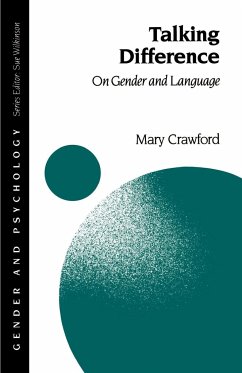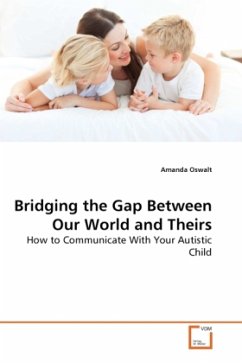
Who Am I Talking to?
The effect of language on bilingual Chinese expression of self-concept and depressive emotion
Versandkostenfrei!
Versandfertig in 6-10 Tagen
32,99 €
inkl. MwSt.

PAYBACK Punkte
16 °P sammeln!
This book tells about a study on bilingual Chinesein America, who have dual cultural identities anddual voices. By altering the language they use, theauthor demonstrated that bilingual Chinese wouldexpress themselves differently according to thecultural schema they internalize via the specificlanguage. It is found that when using English,bilingual Chinese tend to identify with moreindependent self-descriptions than those who useMandarin. In contrast, when using Mandarin, bilingualChinese tend to express their sadness throughinterpersonal sensitivity than those who use English.These results wer...
This book tells about a study on bilingual Chinese
in America, who have dual cultural identities and
dual voices. By altering the language they use, the
author demonstrated that bilingual Chinese would
express themselves differently according to the
cultural schema they internalize via the specific
language. It is found that when using English,
bilingual Chinese tend to identify with more
independent self-descriptions than those who use
Mandarin. In contrast, when using Mandarin, bilingual
Chinese tend to express their sadness through
interpersonal sensitivity than those who use English.
These results were analyzed using a discrete language
analysis program called Latent Semantic Analysis
(LSA). This study confirms the cultural hypothesis
that Eastern culture, especially Chinese, value
interdependence and collectivism more than Western
culture. In addition, language could serve as a
primer or access to those cultural constructs, such
as self-concept and emotion. This book has various
implications to social psychology and applied
psychology, especially the mental health professions,
as it taps into the multiculturalism and
cross-cultural counseling.
in America, who have dual cultural identities and
dual voices. By altering the language they use, the
author demonstrated that bilingual Chinese would
express themselves differently according to the
cultural schema they internalize via the specific
language. It is found that when using English,
bilingual Chinese tend to identify with more
independent self-descriptions than those who use
Mandarin. In contrast, when using Mandarin, bilingual
Chinese tend to express their sadness through
interpersonal sensitivity than those who use English.
These results were analyzed using a discrete language
analysis program called Latent Semantic Analysis
(LSA). This study confirms the cultural hypothesis
that Eastern culture, especially Chinese, value
interdependence and collectivism more than Western
culture. In addition, language could serve as a
primer or access to those cultural constructs, such
as self-concept and emotion. This book has various
implications to social psychology and applied
psychology, especially the mental health professions,
as it taps into the multiculturalism and
cross-cultural counseling.












